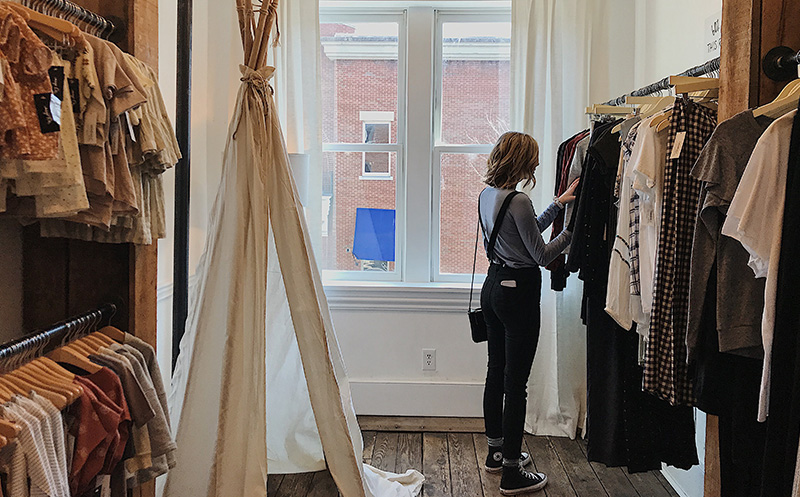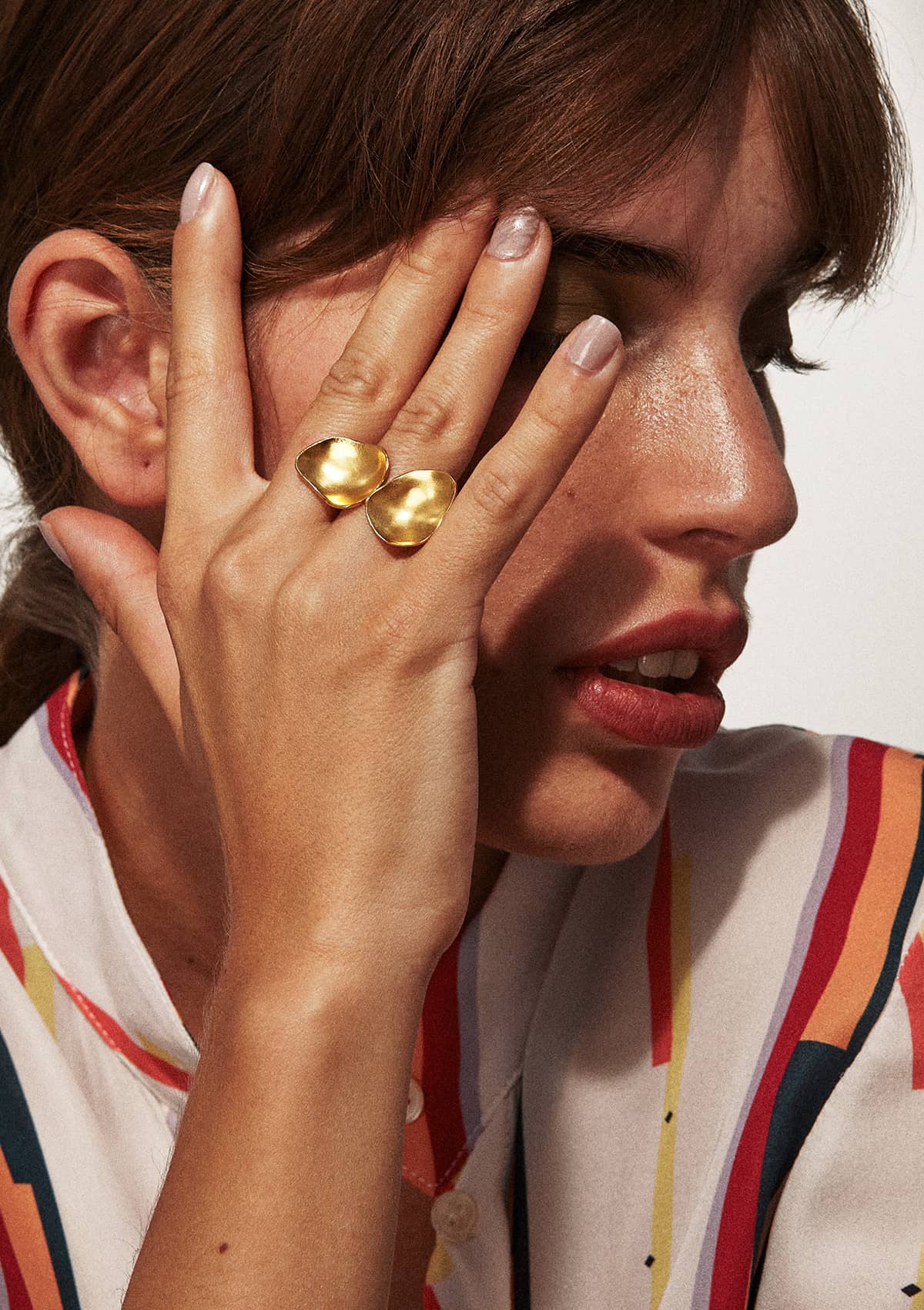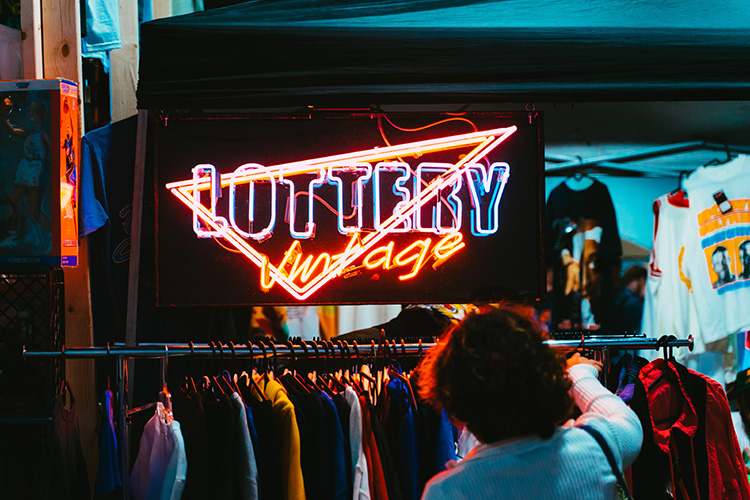
Second-hand and creations
The fashion industry, one of the most polluting industries in the world, is changing. Faced with the ecological challenges facing the world of tomorrow, consumers expect brands to transform the way they produce. Those brands did not wait to get involved through their actions : consumption patterns are changing and the second hand is now on the rise.
However, buying new does not necessarily conflict with this conscious mode of consumption. Paradoxical ? Not that much !
The second-hand market, symbol of a changing culture
According to the Institut Français de la Mode (IFM), in 2019 39% of French people bought at least one accessory or second-hand garment : this market, estimated in 2020 at 7.4 billion euros, is in full boom. The craze for vintage comes in many forms : thrift stores, solidarity or for-profit, are popping up everywhere. They are found in all neighborhoods and in many towns and villages in France.
To appeal to consumers and match their changing habits, the fashion industry has adapted. Many brands are now displaying a “greener” facade : clothing collection at H&M or APC, restoration of damaged parts at Weston, choice of fabrics made from recycled materials at Stella McCartney …
Fast-fashion and luxury are moving in the same direction: reducing the impact of their industry – and riding the wave of a lucrative market.
Each year in France, between 10 and 20 thousand tonnes of textiles are thrown away. In this respect, the boom in the second-hand and upcycling market is auspicious : to prevent 85% of clothes from ending their life in a landfill
The second-hand market is vast : it includes the resale of clothing between individuals, the sale of second-hand clothing by specialized shops or by associations or even the harvest and resale by a brand of its own products.
Upcycling – or overcycling in French – also has a bright future ahead. It consists of recovering scraps or even sheets, curtains, fibers from old textiles, to give birth to a new garment.
These practices, without appearing to be miracle solutions to the looming environmental crisis, have the merit of initiating a mode of consumption that is more respectful of resources and human labor.
Buying new : is it compatible with an ecological commitment ?
Buying second-hand and vintage helps reduce clothing production and therefore reduce pollution in the clothing industry. However, it seems difficult – if not simply impossible – to do without buying new. For some products, there’s no question of buying second-hand, especially when you’re looking for quality. Whether it fills a need (eg a pair of mint condition shoes) or a desire (this bag would go great with our favorite coat), new is still a part of our lives.
So how do you reconcile your fashion needs and your ecological commitment ?
The answer is simple : by consuming fashion consciously. Buying less and better is the new credo of engaged consumers. Fast-fashion is replaced by slow-fashion : rather than buying and throwing away pieces that degrade quickly, we buy less but of better quality.
The choice is rather on worked pieces, whose materials are chosen with care and carried out in an almost artisanal way.
The Label AÉ is conscious and committed. It supports designers of respectful and sustainable fashion. Among these, ANTAGONY is a brand deeply committed to the slow-fashion movement : the materials come from luxury upcycling, since the fabrics are collected in the workshops of the great Parisian houses. Everything is made in France, the products do not travel unnecessarily but on the contrary are part of the movement in a conscious fashion.
The brand’s workshops promote professional reintegration through training in sewing professions : for ANTAGONY, social commitment is inseparable from ecological commitment. In this conscious house, each piece is produced in limited series – even as a unique piece. Acquiring an ANTAGONY part means making a commitment to the world of tomorrow.

Reconciling fashion with the timeless
In his essay System of Fashion, published in 1967, the philosopher Roland Barthes wrote “Each new fashion is a refusal to inherit, a subversion against the oppression of the previous one ; fashion is seen as a right, the right of the present over the past. In other words : each generation redefines its aesthetic codes, breaking away from the previous generation, breaking away from their parents.
However, fashion is experiencing an eternal comeback at the same time : trends are coming back, transformed or intact, and experiencing a new life. The trends are even going faster and faster: the comeback of the trends of the 1990s since the middle of the 2010s is closely followed by the return to favor of the 2000s – very close.
The ephemeral no longer seems to be the fad of fashion. While in many ways it’s still a long way from truly responsible – to be convinced, just follow the micro-trends sparked by social network TikTok – fashion is on the rise.
Isn’t vintage proof that pieces that belonged to our grandparents – or even our parents – fascinate us ? The work of certain designers supported by the Label AÉ consists of bringing together modernity and tradition, in order to anchor fashion in timelessness.
To reconcile the purchase of second-hand and the acquisition of new parts, a life philosophy must be built : that of approaching fashion as a continuity, with respect for the environment, for the designers and for the parts themselves. It is over time that our clothes reveal their true richness.

